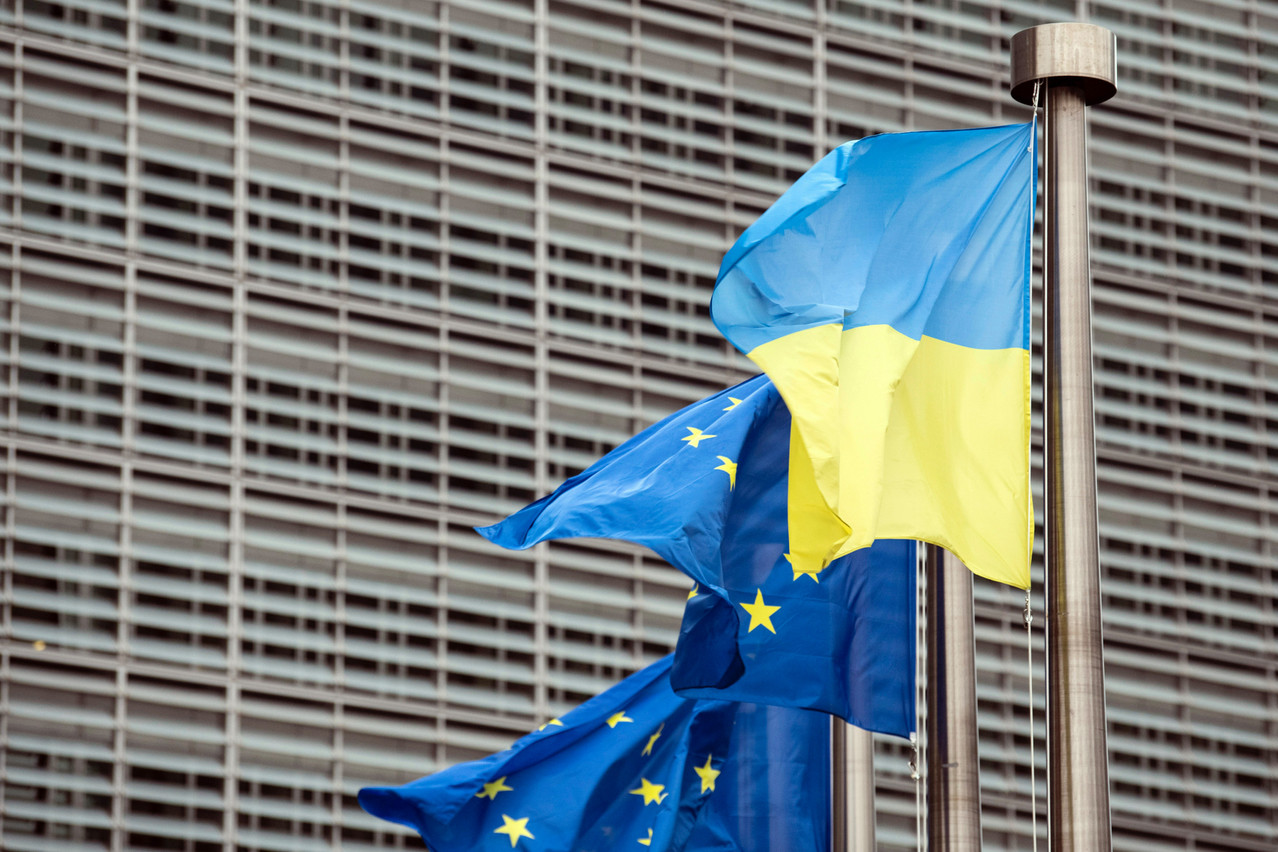Russia’s unjustified and full-scale invasion of Ukraine has continued for over 500 days, leading to widespread destruction in Ukraine and thousands of deaths. Sanctions and the confiscation of Russian assets were key topics during a hybrid conference organised by Transparency International Ukraine and Ukrainska Pravda on 11 July, which took place in Kyiv and online.
Newest sanctions package aims to prevent circumvention
The event opened with a speech from Alberto Fernández-Díez, the head of the trade and economic section of the EU delegation to Ukraine. Since Russia’s full-scale war began on 24 February 2022, the European Union has adopted 11 packages of sanctions, noted Fernández-Díez. These include measures such as sanctions on and asset freezes of Russian decision-makers, government officials and military leaders, export bans on technologies or goods that could be used to support the Russian war effort, an import ban on Russian coal, or transaction bans and asset freezes on Russian banks.
We want to degrade Russia’s military capability to continue its war of aggression against Ukraine
“We’re taking significant steps to ensure effective implementation of both sanctions in the area of individuals, but also sectorial sanctions,” said Fernández-Díez.
The most recent package, which was , includes a new tool to tackle the circumvention of sanctions. The tool will allow the European Union to restrict the sale or transport of specific sanctioned goods and technologies to certain third countries that are considered to be at “high risk of circumvention,” explained a press release from the European Commission. The package also includes a revision of the listing criterion for individuals and entities that are engaged in circumventing EU sanctions, a full ban on Russian trailers and semi-trailers from transporting goods to the EU, and the simplification of the structure of a list of restricted products to reduce circumvention of sanctions through misclassification.
“This is important for us to make sure that our sanctions work,” said Fernández-Díez.
Sanctions implementation needs to withstand legal appeals
Implementing sanctions puts Russia’s industrial and technological capacity under strain, limiting Moscow’s political and economic options, said Fernández-Díez. The EU’s sanctions policy has three goals.
“First, we want to degrade Russia’s military capability to continue its war of aggression against Ukraine. That’s the main objective,” he declared. “The second objective is to deprive the Kremlin from revenues to continue financing this war. And that’s something that our sanctions policy has in mind when we implement it.”
“And the last point is to impose costs on the broader Russian economy,” said Fernández-Díez. The aim is to erode Russia’s industrial and technological base, which will prevent Russia from continuing to wage its war in Ukraine.
Read also
All the sanctions are implemented in “in accordance with what we believe is a solid legal framework,” he added, “so that sanctions are imposed in a fair--not arbitrary--manner, and also respecting fundamental rights, because this needs to withstand appeals in the courts.”
Violation of sanctions enables asset confiscation
In March 2022, the European Commission set up the , which aims to share information within the EU, coordinate actions by member states and ensure efficient implementation of sanctions against Russian and Belarusian oligarchs. But there’s a difference between freezing and confiscating assets, said Fernández-Díez.
Some assets have been frozen, but “others are open for confiscation following a judicial finding of criminal offence.” The EU is working on building up its legal framework to enhance the confiscation of assets on “a strong and robust legal basis,” he added.
It has to be the demonstrated violation of sanctions that enables the confiscation of assets
“Currently, when we talk about the confiscation of assets under the EU legal order, we can only do it under EU criminal law,” said Fernández-Díez. “Sanctions themselves are not the basis for confiscation. It has to be the demonstrated violation of sanctions that enables the confiscation of assets.”
An example would be a Russian oligarch moving ownership of one of their properties outside of the EU, or a change in the ownership of a property after sanctions have been imposed--“this could create a basis of violation of sanctions,” he said. “And this is a criminal offence in most member states. And it will become so in all member states once the directive on sanctions violation criminalisation is transposed in the legal framework of the member states.”
With all these efforts, “we want to disrupt the Russian war machine,” said Fernández-Díez. “It’s about ensuring that the assets of criminal actors are taken away.”
Legal framework needs to be “solid”
All of this, however, must be done “in a robust manner,” Fernández-Díez emphasised, and must be “in line with the rule of law.” The legal framework and argumentation needs to be “solid” enough to withstand criticism or appeals in court.
“We’re closely observing what Ukraine is doing,” he concluded. “And we are glad that Ukraine is making progress in its reasoning about finding new mechanisms for confiscation of assets in their own territory of Ukraine, under Ukrainian law, and this will be an inspiration for some member states.”
Fernández-Díez’s participation in the event was “part of efforts to learn which are the good practices of the Ukrainian authorities in this regard, and to continue the discussion with them.” The conference continued with a presentation on the various mechanisms that Ukraine has used to confiscate Russian assets and a platform that displays data on seized Russian assets, such as the type of asset, former owner or region.
The event finished with a panel discussion featuring Oleksii Sobolev (Ukraine’s deputy minister of economy), Ivan Kibalchych (representative of the prosecutor general’s office), Vitalii Kryklyvyi (judge of the high anti-corruption court) and Inna Bohatykh (representative of the ministry of justice of Ukraine), who talked about challenges around asset confiscation.
More information on TI Ukraine’s platform can be found , and a recording of the event can be found .


